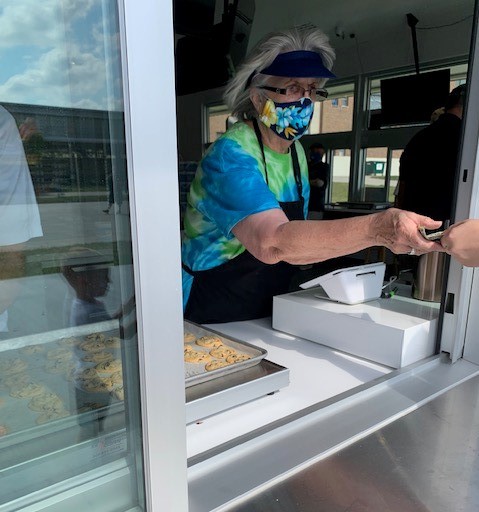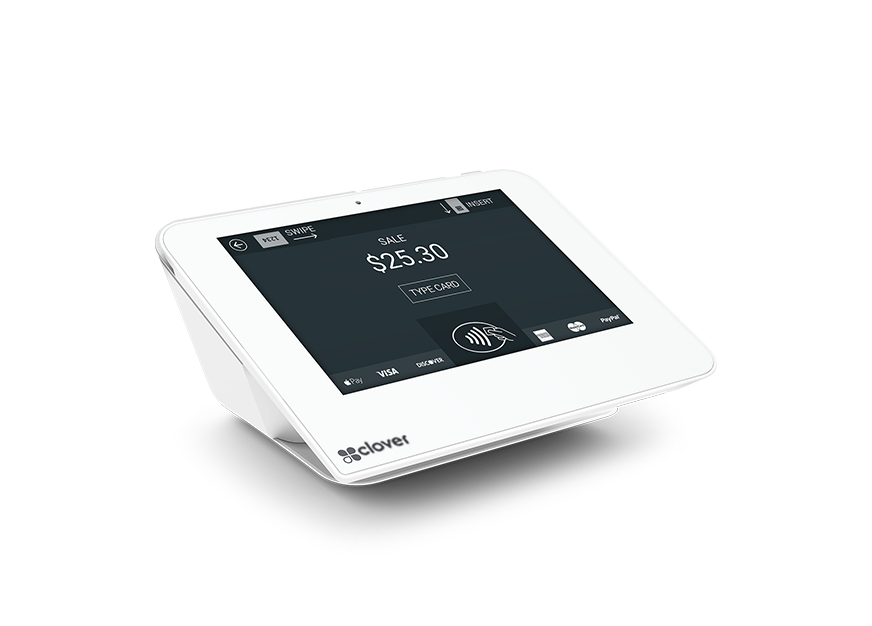
After its second-ever cancellation in 2020 due to the pandemic, it’s official: The Iowa State Fair is back, starting today. Even better, the typical wad of cash that often accompanies fairgoers can stay at home.
The fair announced in July that all food and drink vendors will accept credit and debit card payments this year, thanks to the completion of a three-year, approximately $200,000 infrastructure project and availability of point-of-sale devices for all vendors.
Implementing the ability to swipe a card seems easy to customers, but fair officials knew they had to guarantee a reliable internet connection for all of the more than 250 vendor booths. That meant adding a server and running fiber internet throughout the fairgrounds.
“You have to have fiber. We weren’t comfortable with running it on a [wireless] signal; it needs to go back to something that is hard-wired,” CEO and Fair Manager Gary Slater said. “You can’t ask your vendors to put all of their sales onto a system, and then not be 100% positive that that system will function every minute of every day.”
Also required were resources and equipment to boost the signal as well as a database that could capture sales information coming in from the new point-of-sale devices.
Since 2017, the fair has partnered with Clover, a credit card processor for small businesses and a part of Fiserv, Inc. Discussions took place during the years the infrastructure project was in progress until the fair was ready to welcome Clover’s POS system this year.
Tina Hollis, a senior business consultant for Clover, said “well over 500” devices will be in use by Iowa State Fair vendors this year. In many cases, booths will have multiple devices to allow for more than one line of customers.
Vendors were required by the fair to rent or buy one of Clover’s POS devices, and Hollis said most gravitated toward the Clover Mini, a small, tablet-style device.

Connie Boesen, president of Applishus Inc., will have Clover devices at her six stands across the fairgrounds. She also volunteered as one of the vendors to test the system beforehand.
“For me, I just wanted to be on the front end of it, knowing that it was probably going to be the future,” she said.
Hollis and other Clover representatives are at the fair this week training vendors new to the system, but Boesen said her experience has been smooth apart from small connectivity issues resolved by the expanded internet connection.
For vendors like Boesen, who had not used a POS device like Clover before, Hollis said its features will help them in ways no traditional cash register can. Through the app or the Clover website, vendors will be able to track in real time how much their stands are selling and what product they are running low on.
“Before, I did not know how many I sold of anything except by how many containers, like on the apple eggroll, how many containers did I sell?” Boesen said.
The data allows vendors to identify trends and plan for the next day or the next year. For example, tracking which items sold well and which didn’t helps with planning the next day’s prep work or deciding if a menu item will be removed.
“I know if I’m selling so many of an item per day — do I have enough made? How many do I need to make? It gives you a good barometer of what’s going on,” Boesen said.
Clover will also be a convenience for fairgoers by making it optional to have cash on hand in order to enjoy the fair.
“That’s going to be the biggest advantage for patrons is they can pay in any way they want,” Hollis said. That means cash is still an option in addition to credit and debit cards and electronic payments like Apple or Google Pay.
Still, Slater said trends show the convenience of debit and credit cards will appeal to most fairgoers.
“I don’t know how much cash you carry with you normally, but I’ll bet it’s less than it was five years ago, probably less than it was 10 years ago,” he said. “Fairgoers want that capability, so it’s just keeping up with trends and making sure that we are customer service-friendly.”
The change could also be beneficial to the fair and vendors as customers’ spending is no longer limited by the amount of cash they bring with them.
Other cashless features can be found at this year’s fair. A new feature is QR codes placed at entrances that fairgoers can scan to purchase their ticket online and reduce their time in line. And returning this year are kiosks where midway credits can be replenished without cash. Midway visitors buy radio-frequency identification bracelet that can be reused in future years and simply add more credits at the kiosk.
Through all the changes, Iowans are most excited to see the fair again after a year away.
“It’s like the Disney World of the Midwest,” Hollis said. “Every time I come here, everywhere I go — the airplane, the hotel — everyone is talking about the Iowa State Fair.”
Slater embraces the changes, but he said traditionalists can rest assured that the fair that Iowans left in 2019 is back this year.
“Yes, we are the State Fair,” he said. “We have Grandfather’s Barn, which is almost 200 years old because it was on his property when we started. And that’s tradition. We have the big slide, which is not something that is mechanical, you just slide down it. But they want the capability of buying that ticket with a credit card, not just with the $3 cash. It’s providing convenience to the consumer and making it comfortable to enjoy your day at the Iowa State Fair.”